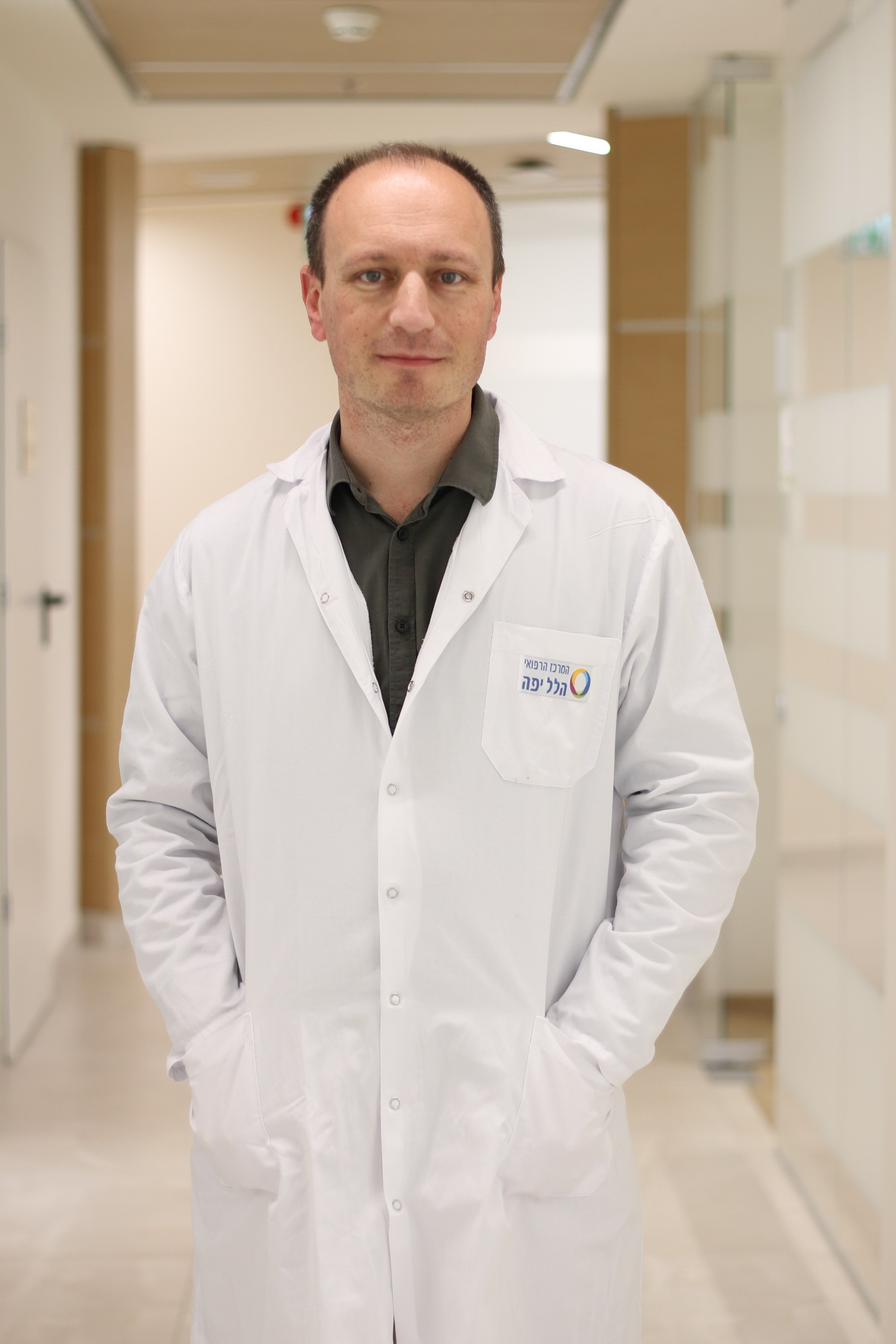|

Dr. Viacheslav Zilbermintz |
Colon cancer is the second most common cancer after breast cancer among women and prostate cancer among men. Every year, around 3,200 people in Israel are newly diagnosed. This cancer also has the second highest mortality rate of all cancers. However, colon cancer is not necessarily a death sentence. To mark Colorectal Cancer Awareness Month, the Director of the Advanced Laparoscopic Surgery Unit at Hillel Yaffe Medical Center, Dr. Viacheslav Zilbermintz, explains the importance of early detection, the treatments which exist, and what we can all do to reduce our risk for the disease.
Early diagnosis
“For most patients, a diagnosis of colon cancer does not equal a death sentence. Screening tests exist for early detection of the disease, which make it possible to detect and identify tumors at a relatively early stage and treat them immediately. “These tests are very important – they make it possible to detect polyps in the pre-malignant stage or discover a cancerous growth at an early stage, thus preventing the development of cancer or, at the very least, increasing the chances of a cure,” explains Dr. Viacheslav Zilbermintz, Director of the Advanced Laparoscopic Surgery Unit at the Hillel Yaffe Medical Center. T
here are three main tests for diagnosis:
Fecal occult blood test – This test enables the detection of traces of blood in the stool. If blood is indeed discovered in the stool, a colonoscopy should be performed as soon as possible, since there is a very high risk of there being a polyp at an advanced stage or a malignant tumor. The results may sometimes be negative, even though there is a tumor there, and therefore it is important to be aware of early signs, and to turn to the doctor if they do appear.
Colonoscopy – a test carried out under sedation, and which lasts around 20 minutes. During this test, it is possible to remove benign polyps and thus prevent them becoming malignant. This test is part of the health basket in Israel for people who have a familial history of colon cancer, or for patients complaining of things such as changes in bowel habits, rectal bleeding, stomachaches, or after the detection of fecal occult blood.
CT colonography (virtual colonoscopy) – a test carried out by inserting a small tube into the rectum. The colon is inflated with gas, and the CT test is carried out. The test has high sensitivity for detecting polyps or tumors, but should something be found, it cannot be removed, and a colonoscopy is needed.
The treatments
Most patients diagnosed with this kind of cancer begin with treatment by a surgeon to remove the tumor. “Over the past twenty years, the minimally invasive laparoscopic surgical technique has entered the field of colorectal surgery. This surgical method is carried out via several small incisions in the abdominal wall, through which special instruments and an advanced camera (laparoscope) are inserted – these allow removal of the tumor from the abdominal cavity, after which a relatively small incision is left in the abdominal wall. This method replaces the old one, in which a long incision was made along the length of the abdomen, leaving behind a more noticeable scar,” notes Dr. Zilbermintz.
Is the new method preferable to the old one?
The answer is yes! Many studies have proven that using laparoscopic surgery to remove a tumor in its entirety and with the necessary margins, while avoiding rupture, is no less effective than the old technique. The advantage of laparoscopic surgery is that it causes less trauma to the abdominal wall and cavity, so that after the surgery the patients experience less pain, recover more quickly, require fewer days of hospitalization, and have less cosmetic damage and long scars on the abdominal wall. Other advantages of laparoscopic operations include the possibility of carrying out an exact screening of the entire abdominal cavity, and combining surgery for different areas and organs – such as removal of the right side of the colon (hemicolectomy) due to a tumor together with removal of the gallbladder because of gallstones – all with one operation.
Is the laparoscopic technique suitable for everyone?
The answer is no. This technique is less suitable for patients who have already had several abdominal surgeries, or for those suffering from tumors at more advanced stages. The decision regarding the surgical technique is individual for each patient, in accordance with his or her medical situation. However, undoubtedly the vast majority of patients should undergo minimally-invasive surgery as the preferred option. After the tumor is removed, the patient visits the oncology institute or hospital department, where the decisions regarding his or her further treatment are made.
Recommendations
It is important that men and women over the age of 50 undergo a fecal occult blood test at least once a year, so as to prevent development of colon cancer, or to detect it at the earliest possible stage.
Should a person notice any symptoms connected to the digestive system which do not pass – long-term stomachaches, blood in the stool, etc. – it is important to approach the doctor for further investigation.
First-degree relatives of colon cancer patients must already undergo colonoscopies from the age of 40.
The risk of developing cancer can be reduced by adopting a healthy lifestyle, including a balanced diet, eating fresh fruits and vegetables, whole grains, reducing the amount of processed foods and red meat, regular physical activity, and not smoking.











.jpg?BannerID=39)

